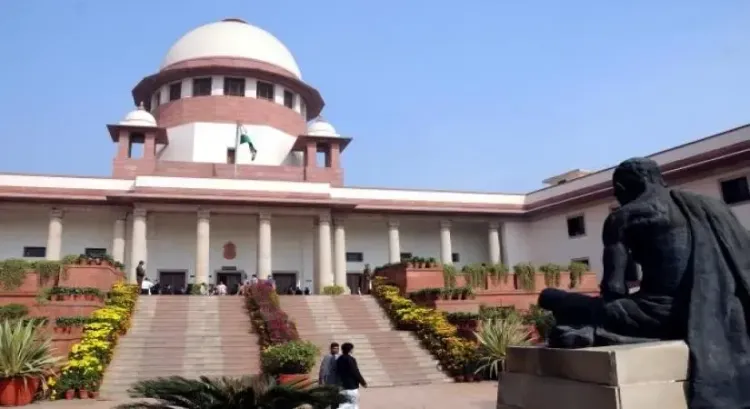Is There a PIL in the Supreme Court Against Commercial Exploitation of 'Operation Sindoor'?

Synopsis
Key Takeaways
- PIL filed against trademark registration.
- Operation Sindoor launched in response to a terror attack.
- Significance of name tied to national sacrifices.
- Legal implications under Trademark Act, 1999.
- Ceasefire agreement violated shortly after announcement.
New Delhi, May 10 (NationPress) A public interest litigation (PIL) has been submitted to the Supreme Court contesting the applications submitted to register a trademark under the title “Operation Sindoor”.
The petition argues that “Operation Sindoor” should not be permitted to be exploited commercially by private entities aiming to profit from public sentiment for their own financial interests.
In response to the tragic Pahalgam terror attack, Indian forces executed an operation called “Operation Sindoor” on Wednesday, successfully neutralizing several terrorist camps located in adjacent Pakistan.
The petition highlights that the name “Operation Sindoor” embodies the sacrifices of the numerous widows of soldiers who have become martyrs in the battle against terrorism. As such, it taps into the emotions of not only the nation’s people but also those who have laid down their lives for the country and the innocent civilians who perished in the April 22 Pahalgam attack.
“Moreover, the registration of the name under the designation Operation Sindoor is not permissible under Section 9 of the Trademark Act, 1999,” the petition asserts.
It further states that since Operation Sindoor is being conducted collaboratively by Indian forces with warriors at the forefront, free from fear in their service to the motherland, it is vital to prevent private companies from capitalizing on public sentiment for personal profit.
Significantly, the Indian Armed Forces initiated Operation Sindoor in the early hours of May 7, targeting terrorist launch pads in Pakistan-occupied Kashmir and in Pakistan.
This operation was a direct response to the April 22 Pahalgam terror attack, which resulted in the deaths of 26 innocent civilians, including a Nepali national.
Following a period of heightened tensions, India and Pakistan announced a ceasefire on Saturday.
However, Pakistani forces breached the ceasefire mere hours after the truce was agreed upon, prompting the Indian army to take necessary actions to address the aggression.










